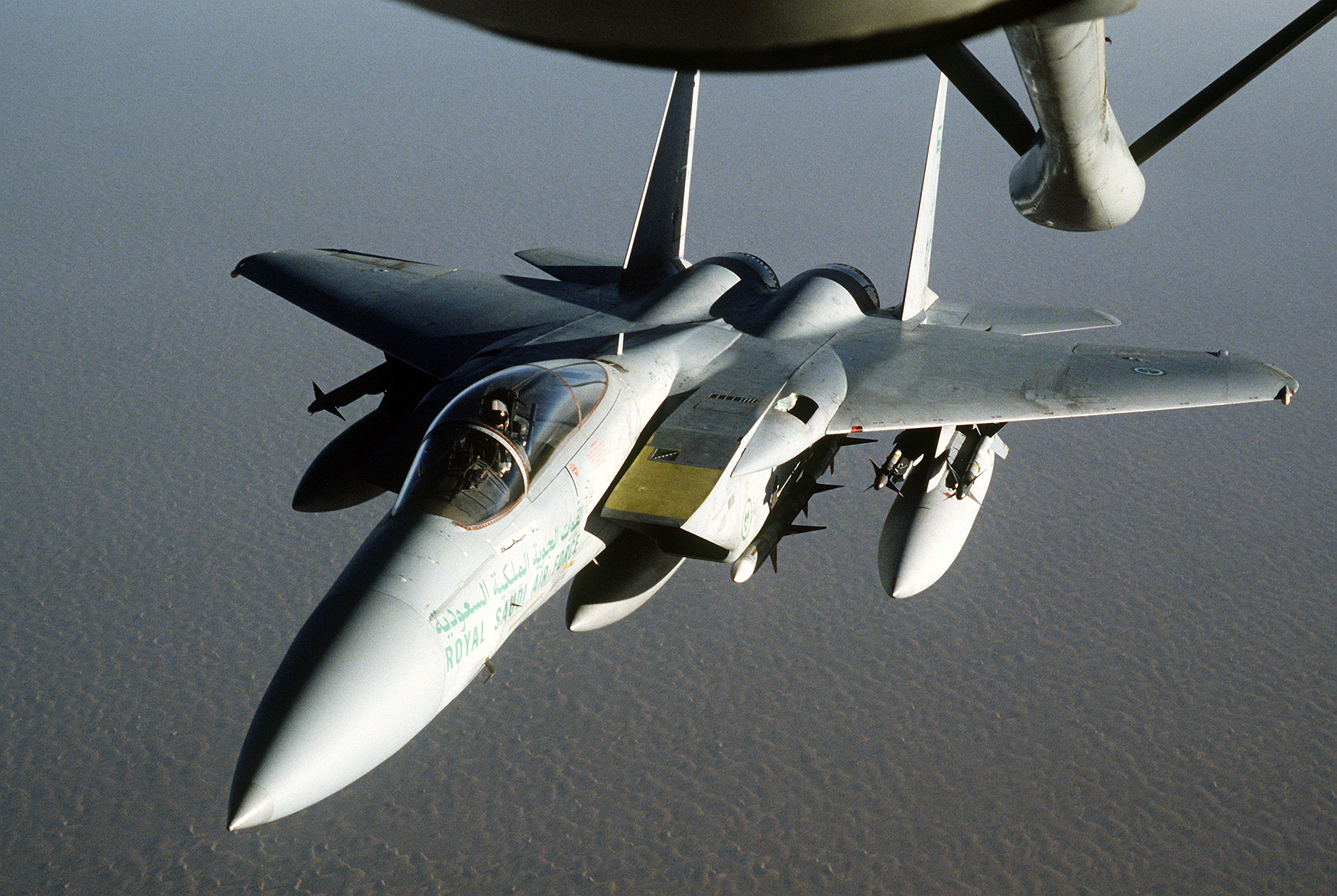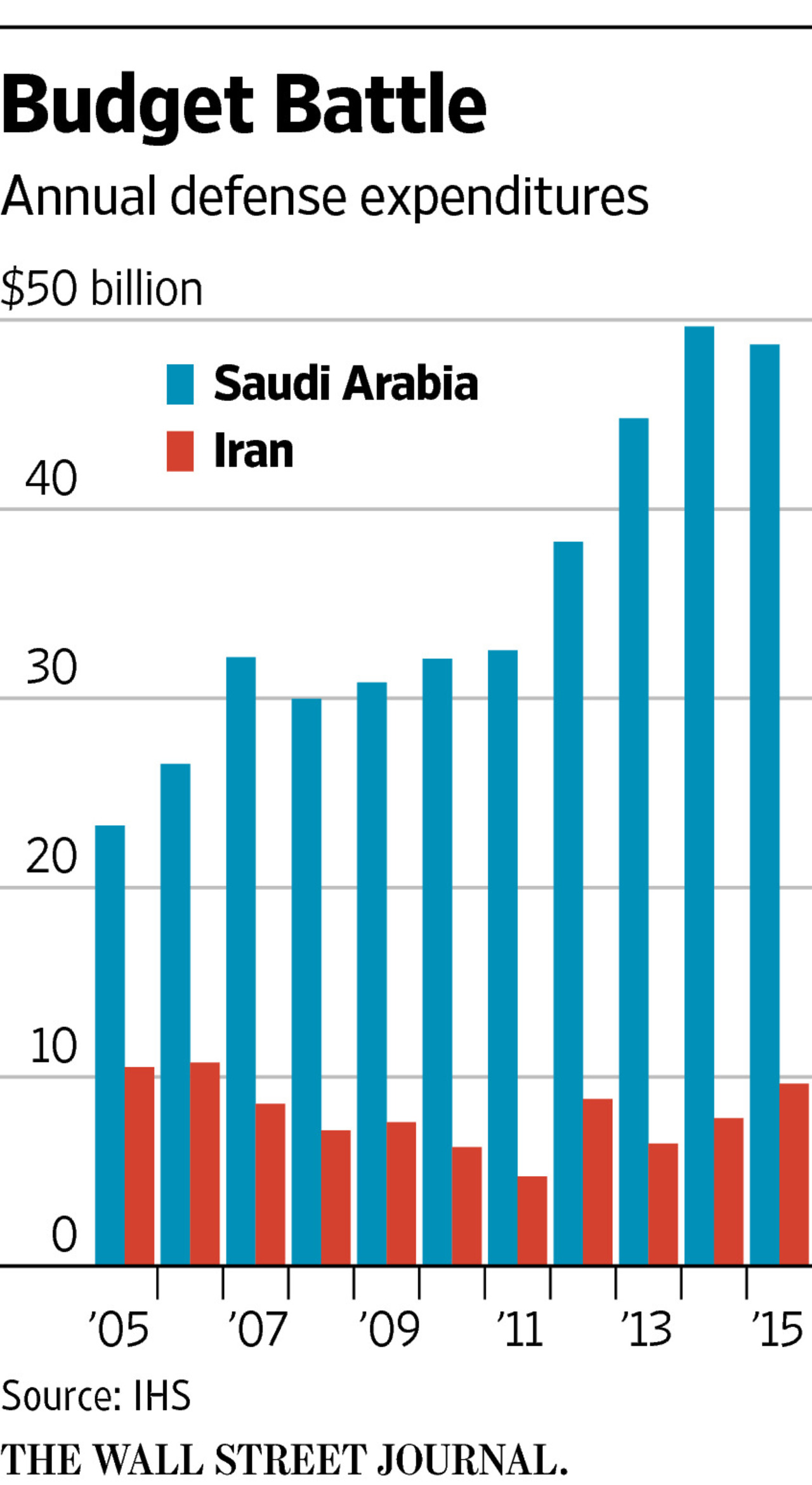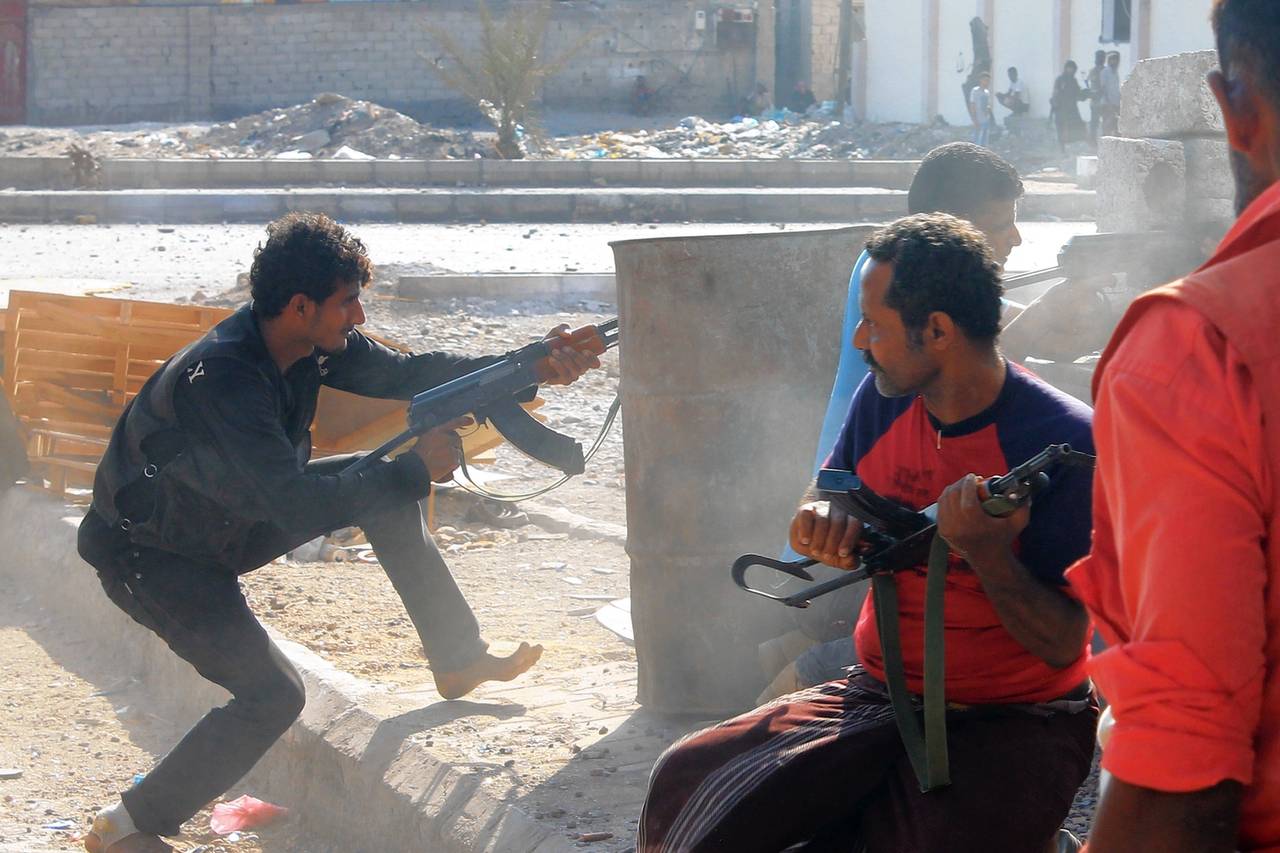BLACKEAGLE
SENIOR MEMBER
By sustaining nearly a month of intensive airstrikes in Yemen, Saudi Arabia shows it can lead a complicated military campaign

RIYADH—Watching Saudi Arabia spend hundreds of billions of dollars on sophisticated weapons in the past decade, many friends and foes of the oil-rich kingdom often wondered to what extent it would be capable of using them.
Now, there is an answer. By sustaining nearly a month of intensive airstrikes in Yemen, Saudi Arabia has shown that—from a purely military standpoint—it can lead a lengthy and complicated campaign.
It’s still far from clear that Riyadh will achieve its ultimate goal of rolling back the pro-Iranian Houthi forces that have taken over much of Yemen. The military campaign, the first that Saudi Arabia has led since 1934, has suffered setbacks—most notably an unexpected refusal by traditional ally Pakistan to join the coalition.
But these challenges notwithstanding, Saudi Arabia has proved—at least in the air—its credentials as a regional military power that could push back against Iran’s growing influence.
“The air force can say it acquitted itself quite well,” said Reed Foster, head of the military capabilities team at the IHS Aerospace, Defense and Security consultancy. “The more you do, the better you get. And they’re gaining very valuable experience.…If I were an Iranian observer, it would have confirmed my fears about Saudi capabilities.”
This display of military might has already unleashed a patriotic fervor in Riyadh. It has spurred talk that, once the Houthis are dealt with, Saudi Arabia’s new Sunni coalition should move against a more formidable Iranian ally, the Syrian regime of Bashar al-Assad, and destroy the Syrian air force.
“The massacres in Syria should stop and its regime there should go,” said Khalid al-Dakhil, a Saudi sociologist and prominent commentator. “The right thing to do after Yemen would be for the Gulf countries, together with Egypt, Jordan and Turkey, to go into Syria to dislodge that regime.”
Before that, of course, the Saudis must complete what they have started in Yemen.
On Tuesday, the kingdom said it had ended the first phase of its military campaign, after nearly 2,500 air sorties that blew up the planes, long-range missiles and weapons depots of the Houthis and of their allies, Yemeni military units loyal to former President Ali Abdullah Saleh.
The Saudi bombing runs—which also resulted in some 1,000 casualties—have blunted the Houthi offensive and prevented, for now, the fall of the southern port city of Aden.

However the coalition’s stated end-goal of restoring President Abed Rabbo Mansour Hadi—who was ousted by the Houthis—to power has yet to be achieved.
Still, that deadly air power has persuaded several Yemeni army brigade commanders across the country to declare that they had switched sides from Mr. Saleh to Mr. Hadi, who is backed by Riyadh and the West.
All that opened the prospects of a political settlement more favorable to Saudi demands. A United Nations Security Council resolution urged such a deal and Oman, which has remained neutral in the conflict, is trying to mediate.
“Saudi Arabia has achieved its military goals” by whittling down the Houthis’ arsenal, argued retired Saudi Col. Ibrahim al-Marie, a security analyst in Riyadh. “Now, once you have peace negotiations, there won’t be one party—the Houthis—sitting at the negotiating table with a Kalashnikov.”
While the Saudis bombed heavy weapons and ammunition depots across Yemen, the Houthis remained a potent force. On Wednesday, they mounted an attack on an army base in the southern city of Taiz, prompting fresh Saudi airstrikes.
Some two-thirds of these sorties were flown by Saudi jets, with the United Arab Emirates fielding the second-largest contingent. The U.S. provided targeting and intelligence assistance, but did not carry out any strikes in Yemen.
“We have spent the money to modernize our forces because we know that deterrence is the pillar of stability in the region,” said Brig. Gen. Ahmed H. al-Aseeri, the Saudi-led coalition’s military spokesman. “We could not accept anyone creating a militia with Scud missiles, with planes, with combat forces and without a clear political status—which is what the Iranians have tried to do with the Houthis right on our borders.”

Militias loyal to Mr. Hadi clashed with Houthis in Aden on Wednesday. Photo: SALEH AL-OBEIDI/AGENCE FRANCE-PRESSE/GETTY IMAGES
Iran, which condemned the Saudi intervention, denies it provided military aid to the Houthis, who follow a strain of Shiite Islam.
The announcement about the end of the first phase of the Saudi involvement doesn’t mean that military operations in Yemen have ended, Gen. Aseeri said. The coalition, he added, will continue targeting Houthi movements and enforcing a naval blockade of Yemen.
For Riyadh, the rise of the Houthis in neighboring Yemen represented a clear and immediate danger to the kingdom’s national security—something that Saudi officials said wasn't properly appreciated in the West.
Back in 2009, Saudi troops suffered heavy casualties in clashes with the Houthis along the border—clashes that forced Saudi Arabia to permanently evacuate entire towns. The bombed-out remains of these homes still stand, overgrown with weeds, in the border zone stretching for miles into the kingdom’s southern Jizan province. The Houthis, like many Yemenis, don't recognize Saudi sovereignty over the kingdom’s southern areas that belonged to Yemen before 1934.
With its limited Saudi casualties, the current campaign against the Houthis has proved remarkably popular inside the kingdom, shoring up support for King Salman, who assumed power in January. Even traditional critics of the Saudi regime now are singing his praises.
“Now we finally have an independent foreign policy, and a decision was taken to deter Iranian initiatives to penetrate the area and interfere in all Arab affairs,” said Mohsen al-Awaji, an Islamist lawyer and political activist who was jailed by Saudi authorities six times, most recently in 2013. “The vast majority of Saudis—I’d say everyone except some Shiites—support King Salman in this war because of the behavior of Iran.”
How far will Saudi Arabia take its pushback against Iranian sway is anyone’s guess—and largely depends on how the Yemeni campaign will conclude.
Asaad al-Shamlan, a professor at the Institute of Diplomatic Studies in Riyadh, said Yemen was a unique case in which Saudi Arabia felt it had no choice but to act because it could not afford a hostile pro-Iranian regime literally on its doorstep.
“I would not say this is a radical departure,” Mr. Shamlan said. “The military instrument has been used by necessity. It has been the result of circumstances rather than just a whimsical desire to play a role.”
The mood on Saudi talk shows, however, is far more gung-ho. Mr. Marie, the retired colonel and a frequent guest, said in his view, Yemen was just the beginning.
“After this operation, we will not stop,” Mr. Marie said, “because the kingdom is strong and the Arab world is strong, and they will want to protect themselves.”
Saudis Show Their Military Might in Yemen Conflict - WSJ

RIYADH—Watching Saudi Arabia spend hundreds of billions of dollars on sophisticated weapons in the past decade, many friends and foes of the oil-rich kingdom often wondered to what extent it would be capable of using them.
Now, there is an answer. By sustaining nearly a month of intensive airstrikes in Yemen, Saudi Arabia has shown that—from a purely military standpoint—it can lead a lengthy and complicated campaign.
It’s still far from clear that Riyadh will achieve its ultimate goal of rolling back the pro-Iranian Houthi forces that have taken over much of Yemen. The military campaign, the first that Saudi Arabia has led since 1934, has suffered setbacks—most notably an unexpected refusal by traditional ally Pakistan to join the coalition.
But these challenges notwithstanding, Saudi Arabia has proved—at least in the air—its credentials as a regional military power that could push back against Iran’s growing influence.
“The air force can say it acquitted itself quite well,” said Reed Foster, head of the military capabilities team at the IHS Aerospace, Defense and Security consultancy. “The more you do, the better you get. And they’re gaining very valuable experience.…If I were an Iranian observer, it would have confirmed my fears about Saudi capabilities.”
This display of military might has already unleashed a patriotic fervor in Riyadh. It has spurred talk that, once the Houthis are dealt with, Saudi Arabia’s new Sunni coalition should move against a more formidable Iranian ally, the Syrian regime of Bashar al-Assad, and destroy the Syrian air force.
“The massacres in Syria should stop and its regime there should go,” said Khalid al-Dakhil, a Saudi sociologist and prominent commentator. “The right thing to do after Yemen would be for the Gulf countries, together with Egypt, Jordan and Turkey, to go into Syria to dislodge that regime.”
Before that, of course, the Saudis must complete what they have started in Yemen.
On Tuesday, the kingdom said it had ended the first phase of its military campaign, after nearly 2,500 air sorties that blew up the planes, long-range missiles and weapons depots of the Houthis and of their allies, Yemeni military units loyal to former President Ali Abdullah Saleh.
The Saudi bombing runs—which also resulted in some 1,000 casualties—have blunted the Houthi offensive and prevented, for now, the fall of the southern port city of Aden.

However the coalition’s stated end-goal of restoring President Abed Rabbo Mansour Hadi—who was ousted by the Houthis—to power has yet to be achieved.
Still, that deadly air power has persuaded several Yemeni army brigade commanders across the country to declare that they had switched sides from Mr. Saleh to Mr. Hadi, who is backed by Riyadh and the West.
All that opened the prospects of a political settlement more favorable to Saudi demands. A United Nations Security Council resolution urged such a deal and Oman, which has remained neutral in the conflict, is trying to mediate.
“Saudi Arabia has achieved its military goals” by whittling down the Houthis’ arsenal, argued retired Saudi Col. Ibrahim al-Marie, a security analyst in Riyadh. “Now, once you have peace negotiations, there won’t be one party—the Houthis—sitting at the negotiating table with a Kalashnikov.”
While the Saudis bombed heavy weapons and ammunition depots across Yemen, the Houthis remained a potent force. On Wednesday, they mounted an attack on an army base in the southern city of Taiz, prompting fresh Saudi airstrikes.
Some two-thirds of these sorties were flown by Saudi jets, with the United Arab Emirates fielding the second-largest contingent. The U.S. provided targeting and intelligence assistance, but did not carry out any strikes in Yemen.
“We have spent the money to modernize our forces because we know that deterrence is the pillar of stability in the region,” said Brig. Gen. Ahmed H. al-Aseeri, the Saudi-led coalition’s military spokesman. “We could not accept anyone creating a militia with Scud missiles, with planes, with combat forces and without a clear political status—which is what the Iranians have tried to do with the Houthis right on our borders.”

Militias loyal to Mr. Hadi clashed with Houthis in Aden on Wednesday. Photo: SALEH AL-OBEIDI/AGENCE FRANCE-PRESSE/GETTY IMAGES
Iran, which condemned the Saudi intervention, denies it provided military aid to the Houthis, who follow a strain of Shiite Islam.
The announcement about the end of the first phase of the Saudi involvement doesn’t mean that military operations in Yemen have ended, Gen. Aseeri said. The coalition, he added, will continue targeting Houthi movements and enforcing a naval blockade of Yemen.
For Riyadh, the rise of the Houthis in neighboring Yemen represented a clear and immediate danger to the kingdom’s national security—something that Saudi officials said wasn't properly appreciated in the West.
Back in 2009, Saudi troops suffered heavy casualties in clashes with the Houthis along the border—clashes that forced Saudi Arabia to permanently evacuate entire towns. The bombed-out remains of these homes still stand, overgrown with weeds, in the border zone stretching for miles into the kingdom’s southern Jizan province. The Houthis, like many Yemenis, don't recognize Saudi sovereignty over the kingdom’s southern areas that belonged to Yemen before 1934.
With its limited Saudi casualties, the current campaign against the Houthis has proved remarkably popular inside the kingdom, shoring up support for King Salman, who assumed power in January. Even traditional critics of the Saudi regime now are singing his praises.
“Now we finally have an independent foreign policy, and a decision was taken to deter Iranian initiatives to penetrate the area and interfere in all Arab affairs,” said Mohsen al-Awaji, an Islamist lawyer and political activist who was jailed by Saudi authorities six times, most recently in 2013. “The vast majority of Saudis—I’d say everyone except some Shiites—support King Salman in this war because of the behavior of Iran.”
How far will Saudi Arabia take its pushback against Iranian sway is anyone’s guess—and largely depends on how the Yemeni campaign will conclude.
Asaad al-Shamlan, a professor at the Institute of Diplomatic Studies in Riyadh, said Yemen was a unique case in which Saudi Arabia felt it had no choice but to act because it could not afford a hostile pro-Iranian regime literally on its doorstep.
“I would not say this is a radical departure,” Mr. Shamlan said. “The military instrument has been used by necessity. It has been the result of circumstances rather than just a whimsical desire to play a role.”
The mood on Saudi talk shows, however, is far more gung-ho. Mr. Marie, the retired colonel and a frequent guest, said in his view, Yemen was just the beginning.
“After this operation, we will not stop,” Mr. Marie said, “because the kingdom is strong and the Arab world is strong, and they will want to protect themselves.”
Saudis Show Their Military Might in Yemen Conflict - WSJ
